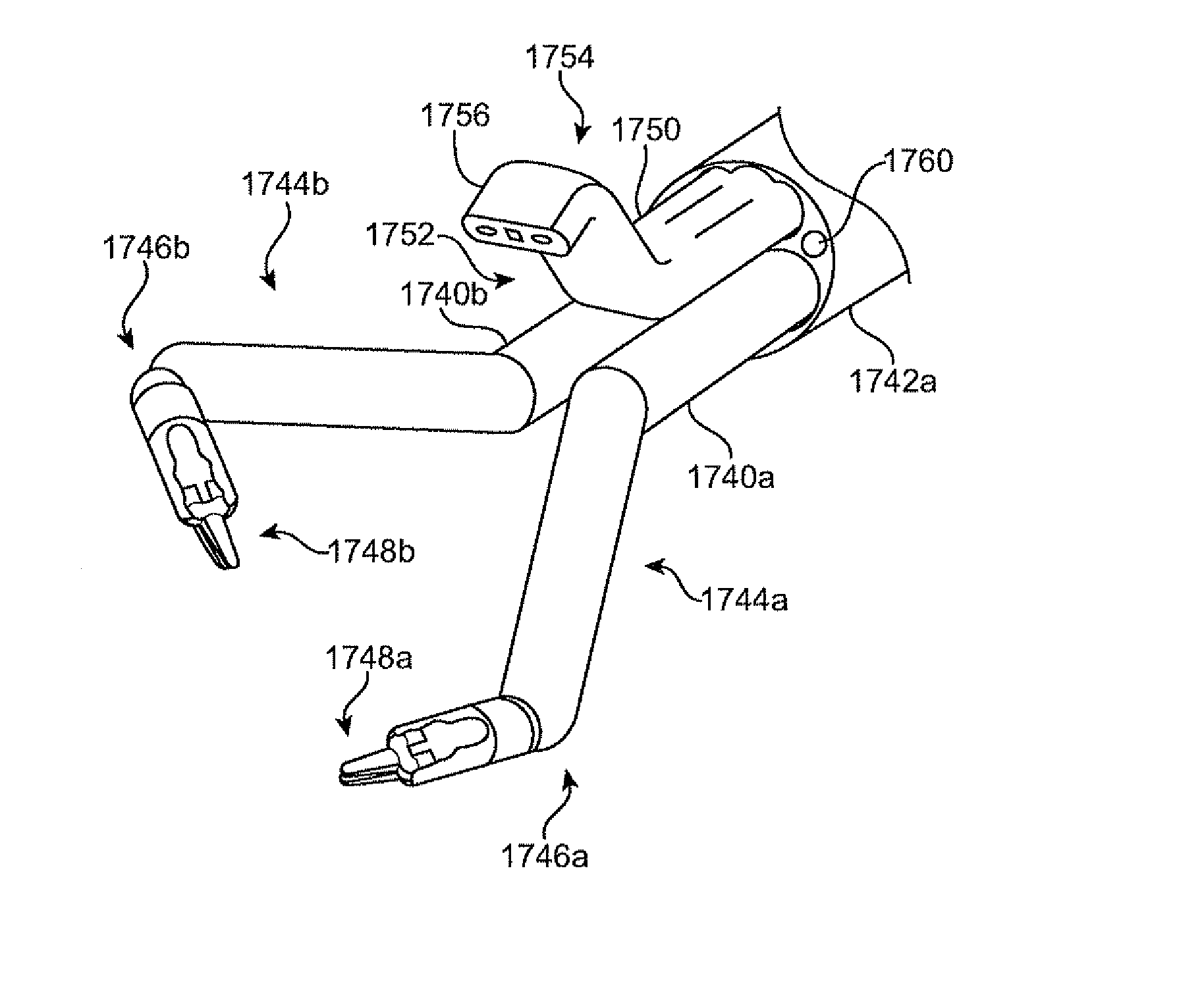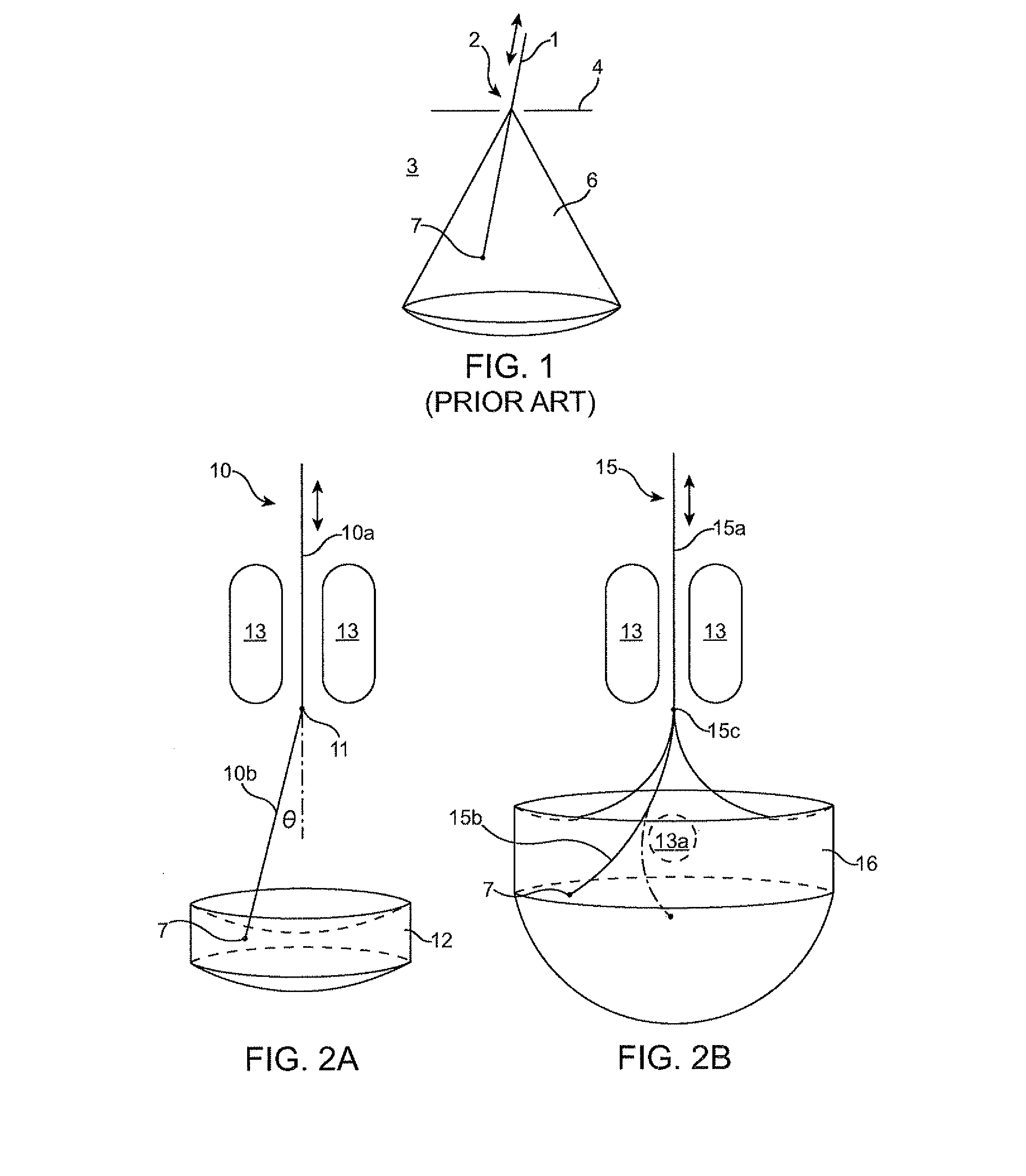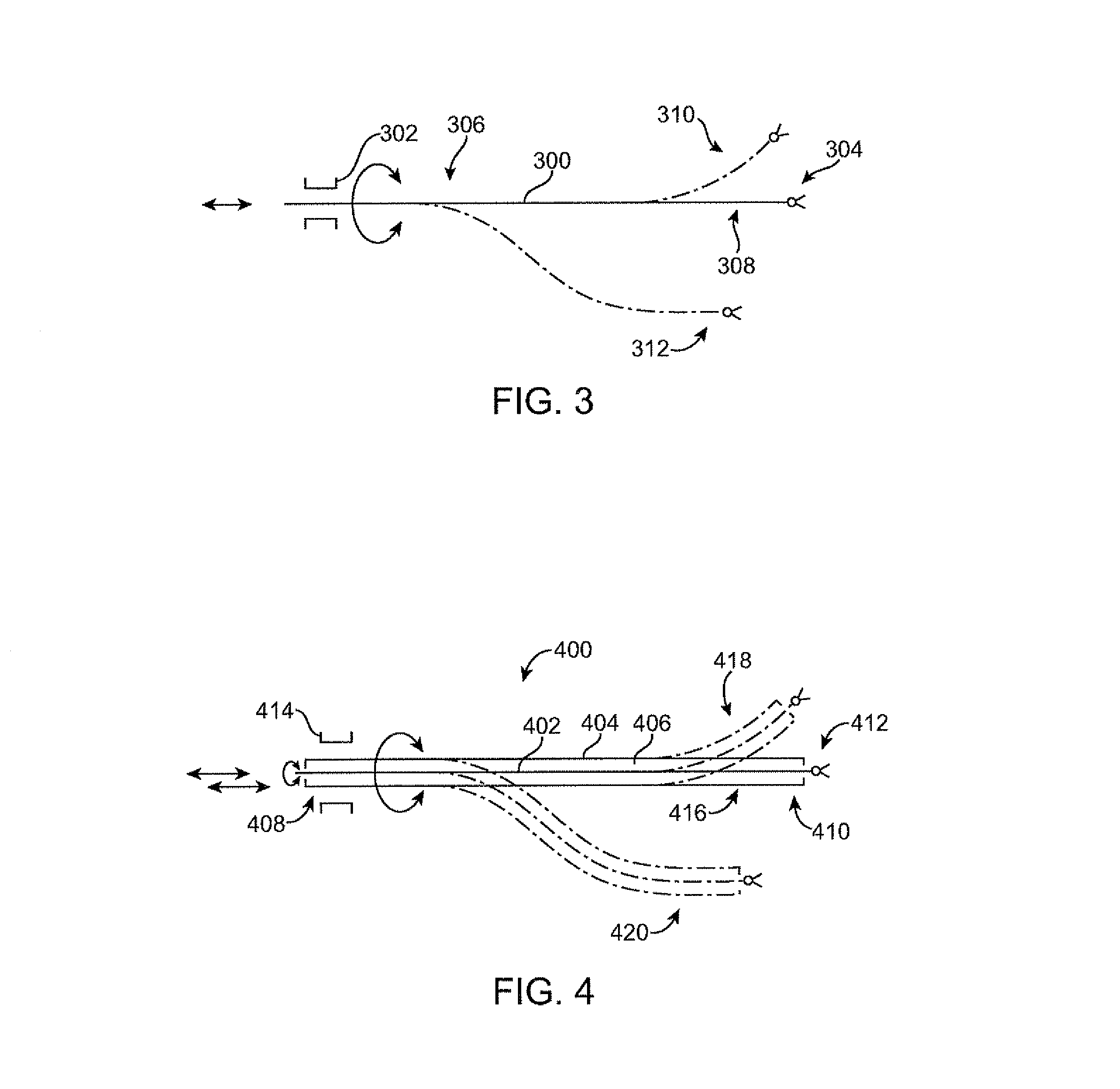Minimally invasive surgery instrument assembly with reduced cross section
a technology of surgical instruments and cross sections, applied in the field of minimally invasive surgery systems, can solve the problems of defective manipulators that cannot be fully controlled, the surgical system of da vinci® cannot effectively access the surgical site, and the inability to fully control the position and orientation of the end effector, etc., and achieve the effect of further reducing the cross section of the guide tub
- Summary
- Abstract
- Description
- Claims
- Application Information
AI Technical Summary
Benefits of technology
Problems solved by technology
Method used
Image
Examples
Embodiment Construction
[0128] This description and the accompanying drawings that illustrate aspects and embodiments of the present invention should not be taken as limiting—the claims define the protected invention. Various mechanical, compositional, structural, electrical, and operational changes may be made without departing from the spirit and scope of this description and the claims. In some instances, well-known circuits, structures, and techniques have not been shown in detail in order not to obscure the invention. Like numbers in two or more figures represent the same or similar elements.
[0129] Further, this description's terminology is not intended to limit the invention. For example, spatially relative terms—such as “beneath”, “below”, “lower”, “above”, “upper”, “proximal”, “distal”, and the like—may be used to describe one element's or feature's relationship to another element or feature as illustrated in the figures. These spatially relative terms are intended to encompass different positions...
PUM
 Login to View More
Login to View More Abstract
Description
Claims
Application Information
 Login to View More
Login to View More - R&D
- Intellectual Property
- Life Sciences
- Materials
- Tech Scout
- Unparalleled Data Quality
- Higher Quality Content
- 60% Fewer Hallucinations
Browse by: Latest US Patents, China's latest patents, Technical Efficacy Thesaurus, Application Domain, Technology Topic, Popular Technical Reports.
© 2025 PatSnap. All rights reserved.Legal|Privacy policy|Modern Slavery Act Transparency Statement|Sitemap|About US| Contact US: help@patsnap.com



